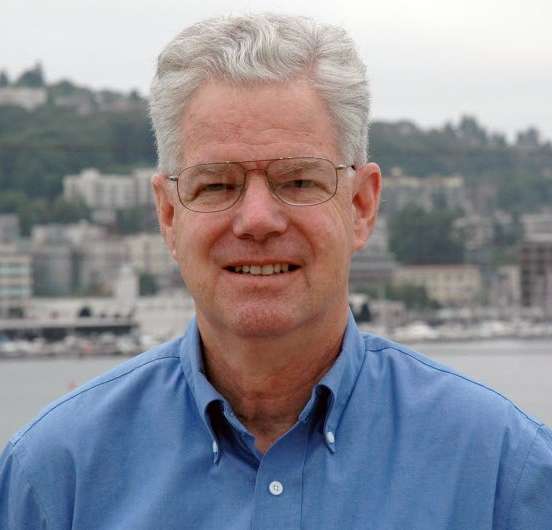Phone counseling found insufficient to help teen smokers stay quit into young adulthood

In a 14-year study involving more than 2,000 teen smokers in 50 Washington state high schools, a team of cancer prevention researchers at Fred Hutchinson Cancer Research Center has found that one year of telephone counseling using motivational interviewing and skills training delivered during the senior year of high school is insufficient to help the smokers quit and stay quit up to six years into young adulthood.
The finding is significant because previous results from the same study had indicated that the intervention did have a beneficial effect in helping smokers quit earlier, at one year after high school. This earlier finding was a research breakthrough: It was the first-ever demonstration of effectiveness of a smoking-cessation intervention in a population-based sample of teens.
But today the researchers report that, by the time the teens became young adults, the earlier effectiveness had completely faded. Two-thirds of the teen smokers who had quit earlier had gone back to smoking. These findings, by principal investigator Dr. Arthur V. Peterson Jr., database manager Patrick Marek, and colleagues in the Public Health Sciences Division at Fred Hutch, are reported in a paper published Feb. 1 in the peer-reviewed, open-access journal PLOS ONE.
This new finding means that to help teen smokers quit and stay quit after high school and beyond, new extended interventions are needed: ones that stick with them longer than just one year, and that continue into young adulthood.
Telephone counseling was used because of its special appeal to teens. It provided private, confidential, one-to-one counseling and allowed the counselors to explore and focus on issues specific to the individual smoker. Telephone counseling also gave teens control over the timing and length of the counseling sessions.
The motivational interviewing approach, first described in the early '80s by Dr. William R. Miller, seeks to learn from each client their thoughts, attitudes, and practices about smoking and non-smoking. This approach aims to explore and resolve the participants' ambivalence about smoking and quitting, and to mobilize their inner resources to trigger a decision to quit.
"Motivational interviewing is very caring, nonjudgmental and respectful," explained Kathleen Kealey, co-investigator and intervention manager of the study. "It is non-confrontational. A counselor would never say, 'I want you to quit smoking.' Instead the counselor would ask what the behavior means to the participant. What do they like about it? What don't they like about it? In the end, it is the smoker's own reasons and desire to quit that motivate the quit attempt."
The deferential approach of motivational interviewing is especially appropriate for high school students, because teens in particular don't want to be told what to do. Motivational interviewing puts them in the driver's seat.
In the beginning, this approach worked. Smokers responded in large numbers to invitations from the telephone counselors to participate in the conversations. In the experimental telephone counseling group, 65 percent of the smokers agreed, with their parents' permission, to participate during their senior year of high school. "To get this large amount of participation by teen smokers was a terrific vote of confidence in telephone counseling that uses the motivational interviewing approach," said Peterson, lead author of the paper.
The findings were based on data from the Hutchinson Study of High School Smoking, the largest and longest randomized trial of teen smoking cessation ever conducted. "This study showed that most teens are interested in sharing their views and practices about smoking. The field has encountered great obstacles in recruiting teens to smoking-cessation programs. And so, the large participation rates accomplished in this study were a big breakthrough."
There were good reasons to think that an expanded multi-year version of telephone counseling based on motivational interviewing might work to help teen smokers quit and stay quit for the long term. First of all, this study has shown that teens like the deferential approach of motivational interviewing. Indeed, two-thirds of smokers in the study were happy to accept the study's invitation and participate in telephone conversations.
Also, the motivational interviewing approach worked in the short term: at one year post high school it led to increased six-month abstinences, a strict measure of quitting smoking. "But it is well known that individual motivations, and pressures to smoke, change substantially in the critical period after high school," Peterson said. "So, a sustained intervention that sticks with them during this period of change, aimed at helping them address their changing motivations and new situations to help them avoid relapse to smoking, makes good sense."
Fifty high schools in Washington state collaborated with Peterson and colleagues on this long-term, randomized trial. Half of the schools were randomly assigned to the experimental intervention; teens in these schools were, with their parents' permission, proactively contacted and invited to take part in confidential, personalized telephone counseling designed to help motivate them to quit. The remaining 25 schools served as a comparison group; teen smokers from these schools did not participate in the telephone intervention.
"It was only because of the tremendous cooperation from students, parents, teachers and administrators that this study was able to rigorously address the important question of how to help interested teen smokers to quit," Peterson said. "Without such a high level of interest and cooperation this study could not have been done."
More information: Arthur V. Peterson et al. Does Effectiveness of Adolescent Smoking-Cessation Intervention Endure Into Young Adulthood? 7-Year Follow-Up Results from a Group-Randomized Trial, PLOS ONE (2016). DOI: 10.1371/journal.pone.0146459


















